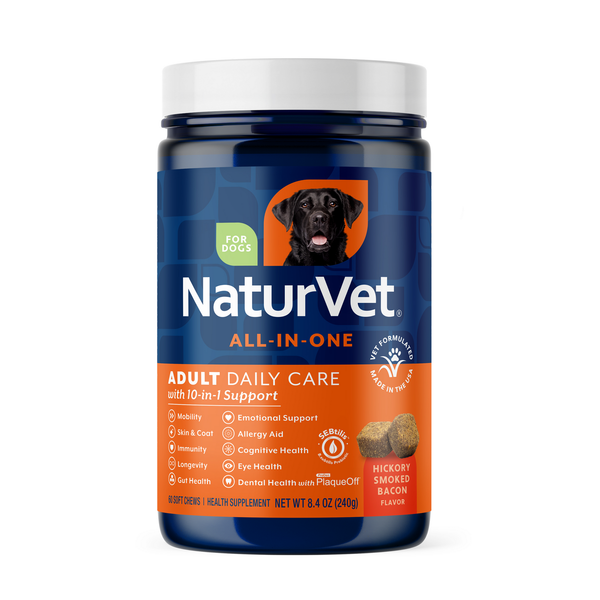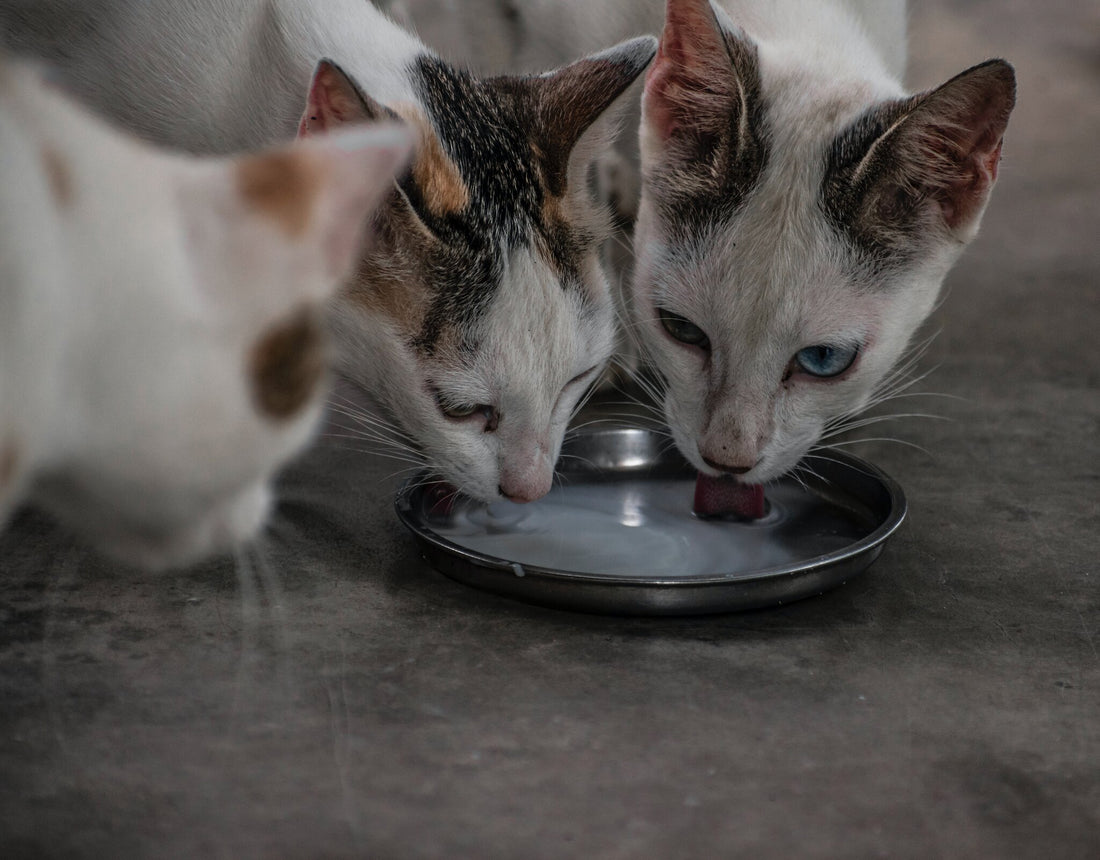Can Cats Drink Milk?
As responsible pet owners, sometimes we get caught up in giving our cats the best of everything. But is giving cats milk crossing the line?
You might think that this is an easy question. Cats are carnivores, so they should be free to consume any animal products they desire, right? It’s not quite that simple.
While house cats are predatory animals, humans have domesticated them as pets. While giving cats milk is popular among pet parents, there are some things to consider when answering the question: can cats drink milk?
Are Cats Lactose Intolerant?

It depends! Just like with humans, some cats are intolerant to lactose, but others can digest it just fine. So how do you know if your cat has a problem with dairy products?
If your cats have lactose intolerance, they will probably show discomfort when they consume milk. Symptoms may include nausea, vomiting, and/or diarrhea. If your cat shows these symptoms after drinking milk, you should stop giving them this product altogether. Either discontinue dairy altogether or opt for a low-fat variety while continuing to monitor symptoms.
Cats Don't Produce Milk Proteins
So why do some cats have trouble with milk when others don't? It all comes down to the type of protein found in milk: casein.
As their name suggests, casein proteins comprise casein molecules linked together by calcium phosphate bonds. When these casein molecules break apart inside your cat's digestive tract, they release di- and tri-peptides that may cause upset stomach and/or diarrhea if ingested in large quantities. However, if you give your cat just a small amount of milk, they should be able to handle it just fine.
What Kind of Milk Should You Give Your Cat?

If you decide to offer your cat a bowl of milk, it’s important to consider the type and fat content.
A healthy diet for cats includes a lot of protein, but most cats don't get enough calcium from their food alone. This can lead to poor bone development in kittens and young adult cats (both of whom need extra calcium) and bone fractures in older cats.
Vitamin D is another nutrient that promotes bone growth and density, helping to prevent broken bones later in life. For example, cats who don't get enough vitamin D may develop rickets or osteomalacia (weak bones). Vitamin D is found naturally in salmon, tuna, and cod liver oil — all good sources of omega-3 fatty acids — but it's also found in foods like milk and yogurt.
If your cat has an upset stomach or diarrhea after eating dairy products like cow's milk or cheese, they may be sensitive to lactose.
The solution? Goat's milk.

Goat's milk is easier to digest than cow’s or soy milk, and it contains more calcium than any other dairy product! You can also try coconut water, which offers many health benefits for humans and pets.
So if you want your cats to get all the nutrients they need from drinking a glass of something every day, consider introducing a small amount of goat's milk to their diet.
How Much Milk Can a Cat Drink?

In most cases, there's no problem with giving your cat a little bit of milk here and there. Cats often pick up milk from a bowl when they're particularly hungry or thirsty. But giving them too much can lead to diarrhea, bloating, and vomiting. It can also cause digestive problems such as pancreatitis and lactose intolerance, leading to more severe issues like diabetes.
If your cat is prone to digestive issues, then it may be best to stick with water. But if you want to give them some milk once in a while, just in case they need it, follow these guidelines:
- First, start slow and only offer your cat only a little bit.
- If you notice diarrhea or other symptoms within 24 hours of consuming milk, stop immediately and contact your veterinarian for advice.
- If your cat seems to tolerate the milk well, you can give them a little more next time.
- If they tolerate that well, gradually increase his intake over time until they get one or two small bowls of milk per day.
Should You Give Kittens Milk?

It's never a good idea to feed kittens cow's milk, even if they seem to want it. Kittens need a unique formula that contains more fat than cow's milk but has other nutrients and protein levels.
If you want to treat your kittens, try goat's milk instead. It has all the nutrients that kittens need but doesn't contain lactose and is generally easier to digest.
If your kitten is already drinking cow's milk, you can switch them to a formula that contains the same nutrients. Talk to your vet about what kind of formula would be best for your kitten and how much they should get each day.
Why Do Cats Love Milk?
Cats are not just picky about what they eat but also about how it tastes. They love milk because of its creamy texture and sweet taste.
Cats also enjoy the warmth of lightly heated milk and its soothing effect on their throats. If you want to give your kitten some milk, try adding a touch of hot water, so it's not too rich or cold.
Optimal Feeding (And Drinking) Schedule
A quality diet is essential to the health of your cat. Cats are carnivores and require a balanced diet of meat, fat, and protein. Commercial pet foods are formulated to meet all of these requirements.
The best way to ensure that your cat receives the right amount of nutrients is to feed them a commercial food that contains animal protein as its first ingredient. Dry kibble is also convenient because it can be left out for your cat without spoiling. However, most cats prefer canned food over dry kibble, so if you have a picky eater, try offering both types of food.
For optimal health, feeding your cat on a consistent schedule is essential. Cats should eat several times per day in small amounts — usually about ⅓ cup per day for kittens and young cats up to 6 months old, ⅔ cup for cats six months and older, and 1 cup for an adult cat weighing four4 pounds or more.
If your cat is overweight, feed him less. Underweight? Feed him more. If you have an older cat with kidney disease or diabetes, talk to your veterinarian about how much food to offer him daily and how often to feed him.
Concluding Thoughts
Cat food is formulated to meet the specific nutrient requirements of cats, so there's no need to supplement their diet with milk. However, if you want something extra for your cat, even just as a treat, consider goat's milk instead of cow's milk. If you want to feed your cat yogurt, make sure it's plain and unsweetened.
JOIN OUR PACK
Follow us @NaturVet on social media to fill us in on any tips we might have missed. And, check out the rest of NaturVet.com. We’ll keep you up to date on all our latest pet resources, supplements, tips and tricks, and more – everything you need to be the best pet parent possible.























